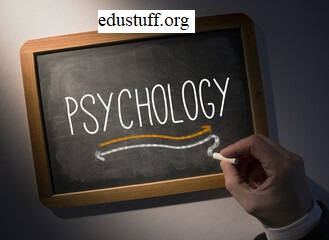
Careers in Educational Psychology: Building Brighter Futures
Careers in Educational Psychology
Educational psychology is a dynamic and vital field that plays a crucial role in improving learning and educational outcomes. Educational psychologists apply their knowledge of human behavior and learning to help students, educators, and institutions create effective learning environments. In this article, we will explore the field of educational psychology, its theories, various career paths, required qualifications, job responsibilities, and the skills necessary to excel in this rewarding profession.
What is Educational Psychology?
Educational psychology focuses on the study of how people learn and develop within educational settings. It encompasses the application of psychological principles and theories to educational contexts. Educational psychologists aim to understand the cognitive, emotional, and social processes that influence learning and use this knowledge to enhance educational practices.
The field of educational psychology has evolved significantly over time. It emerged as a distinct discipline in the late 19th century and has since been shaped by prominent figures such as John Dewey, Lev Vygotsky, and Jean Piaget. Today, educational psychology combines insights from various psychological theories and disciplines to inform educational interventions and policies.
Educational Psychology Theories
Several key theories and concepts form the foundation of educational psychology. These theories help educational psychologists understand how students learn and develop and guide their interventions. Let’s explore these influential theories in more detail:
Behaviorism: Behaviorism, championed by psychologists such as B.F. Skinner and Ivan Pavlov focus on observable behaviors and the external factors that influence them. It emphasizes the role of reinforcement, conditioning, and stimulus-response associations in learning. Behaviorist principles have been widely applied in educational settings, such as using rewards and positive reinforcement to motivate students.
Cognitive Development Theory: Pioneered by Swiss psychologist Jean Piaget, the cognitive development theory proposes that individuals progress through distinct stages of cognitive growth as they acquire knowledge and understanding. Piaget’s stages, including the sensorimotor, preoperational, concrete operational, and formal operational stages, shed light on the developmental processes that shape learning and thinking.
Socio-cultural Theory: Developed by Soviet psychologist Lev Vygotsky, socio-cultural theory emphasizes the importance of social interaction and cultural context in cognitive development. Vygotsky posited that learning takes place through collaboration with more knowledgeable individuals and that cultural tools, such as language and symbols, play a vital role in shaping cognitive processes. This theory highlights the significance of social and cultural factors in educational practices.
Multiple Intelligences Theory: Proposed by psychologist Howard Gardner, the multiple intelligences theory challenges the traditional notion of a single, general intelligence. Gardner suggests that individuals possess different types of intelligence, such as linguistic, logical-mathematical, musical, bodily-kinesthetic, interpersonal, and intrapersonal intelligence. This theory encourages educators to recognize and foster diverse forms of intelligence, tailoring teaching methods to individual strengths.
Educational Psychology Careers
Overview of Career Paths
Educational psychology offers a range of career paths that cater to diverse interests and goals. Here are a few common options within the field:
School Psychologist: School psychologists play a crucial role in promoting students’ well-being and academic success. They work directly with students, teachers, and parents to address academic, emotional, and behavioral challenges. School psychologists conduct assessments to identify students’ learning and psychological needs, develop intervention plans, provide counseling and support, and collaborate with educators to create inclusive and supportive school environments.
Educational Consultant: Educational consultants provide expert advice and guidance to educational institutions, administrators, and teachers. They analyze educational programs, assess instructional effectiveness, and provide recommendations for curriculum development, instructional strategies, and student assessment. Educational consultants often work independently or with organizations to help schools enhance teaching and learning practices.
Researcher/Academician: Researchers and academicians contribute to the advancement of educational psychology through conducting research, publishing studies, and teaching. They work in universities, research institutions, and educational organizations. These professionals design and conduct studies to explore educational phenomena, investigate the effectiveness of interventions, and contribute to evidence-based practices in education. They also teach courses that cover educational psychology theories and practices, shaping the next generation of educational psychologists.
Special Education Specialist: Special education specialists work with students who have disabilities or exceptional learning needs. They collaborate with teachers, parents, and other professionals to develop and implement individualized education plans (IEPs) tailored to meet student’s unique needs. Special education specialists provide specialized interventions, accommodations, and support to help students succeed academically and socially.
Qualifications and Education
Educational requirements for educational psychology careers vary depending on the specific role and setting. However, most positions require at least a master’s degree in educational psychology, school psychology, or a related field. Some roles, such as academic research or university teaching, may require a doctoral degree (Ph.D. or Ed.D.) in educational psychology.
It is important to choose accredited programs and degrees in educational psychology to ensure quality education and eligibility for licensure or certification. Accredited programs meet specific standards of quality and relevance set by professional organizations and accrediting bodies. Additionally, specific certification or licensure requirements may exist depending on the jurisdiction or desired career path.
Job Responsibilities and Duties
The job responsibilities of educational psychologists vary depending on their roles and settings. Let’s explore some typical tasks and activities in different career paths:
School Psychologist: School psychologists play a critical role in promoting students’ mental health, academic success, and social-emotional well-being. They conduct assessments to identify students’ learning and behavioral needs, administer psychological tests, and interpret assessment data to develop intervention plans. School psychologists provide counseling to students individually or in groups, addressing issues such as behavior management, social skills, and emotional well-being. They collaborate with teachers, parents, and administrators to implement appropriate interventions and strategies, monitor students’ progress, and advocate for their needs.
Educational Consultant: Educational consultants leverage their expertise in educational psychology to support schools and educational institutions. They analyze educational programs, curriculum materials, and instructional approaches to assess their effectiveness. Consultants provide recommendations for improving curriculum design, teaching methodologies, assessment practices, and classroom management techniques. They may deliver professional development workshops or training sessions for teachers and administrators, equipping them with evidence-based strategies to enhance student learning outcomes.
Researcher/Academician: Researchers and academicians in educational psychology contribute to the knowledge base of the field through rigorous research and scholarship. They design and conduct studies to explore various educational phenomena, such as learning processes, motivation, educational interventions, or the impact of technology on learning. Researchers may collect and analyze data, utilize statistical methods, and interpret findings to draw meaningful conclusions. They publish their work in academic journals, present research at conferences, and contribute to the broader academic community. Additionally, these professionals may teach courses in educational psychology, sharing their expertise with aspiring educators and psychologists.
Special Education Specialist: Special education specialists focus on meeting the unique needs of students with disabilities or exceptionalities. They collaborate with teachers, parents, and other professionals to develop and implement individualized education plans (IEPs) that outline appropriate accommodations, modifications, and support services. Special education specialists assess students’ learning needs, design interventions, and monitor progress to ensure students receive the necessary academic and emotional support. They advocate for inclusive practices, provide resources and training to teachers, and collaborate with multidisciplinary teams to create inclusive learning environments.
Job Settings
Educational psychologists work in various settings, including:
Schools and Educational Institutions: Many educational psychologists are employed in K-12 schools, colleges, and universities, where they work directly with students, teachers, and administrators to improve educational outcomes. They may be part of the school’s counseling department or work in collaboration with educators to create positive learning environments, address behavioral challenges, and provide support for students with diverse needs.
Research Organizations: Educational psychologists may work in research institutions or think tanks dedicated to studying educational practices and policies. They contribute to research projects, evaluate the effectiveness of interventions, and provide evidence-based recommendations to inform educational practices and decision-making.
Private Practice: Some educational psychologists establish their private practices, offering services such as assessments, counseling, and consultation to students, parents, and educational organizations. In private practice, they may work with individuals or families seeking specialized support, conduct assessments for learning disabilities, or provide counseling services to address emotional or behavioral challenges.
Government Agencies: Educational psychologists may find employment in government agencies responsible for education policies, standards, and regulations. They provide expertise and guidance in developing educational programs, evaluating interventions, and shaping policies that promote effective learning environments and inclusive education.
Job Outlook and Demand
The demand for educational psychologists is expected to grow in the coming years due to several factors. Increasing awareness of mental health issues, the importance of inclusive education, and the need for evidence-based interventions contribute to the rising demand for professionals in this field. However, job opportunities can vary depending on geographic location, educational policies, and budgetary constraints. It is worth noting that the demand for specialized expertise, such as in areas like special education or research, may influence job prospects in specific subfields.
Skills and Competencies
Essential Skills for Educational Psychologists
Communication and Interpersonal Skills: Effective communication skills are essential for educational psychologists to build rapport with students, parents, teachers, and other stakeholders. They should be able to convey complex concepts clearly and understandably and listen actively to understand the needs and concerns of others.
Assessment and Evaluation Techniques: Proficiency in administering and interpreting various assessment tools and techniques is vital for educational psychologists. They should be skilled in assessing students’ academic abilities, cognitive processes, social-emotional well-being, and behavioral challenges. This includes knowledge of standardized tests, observation techniques, and conducting interviews.
Data Analysis and Research Skills: Educational psychologists need strong data analysis and research skills to collect and interpret data, draw meaningful conclusions, and contribute to evidence-based practices. Proficiency in statistical analysis, research design, and understanding of research methodologies equips them to critically evaluate educational interventions and contribute to the field through their research.
Knowledge of Learning and Development Theories: Educational psychologists should have a solid understanding of learning theories, cognitive development, and educational psychology research. This knowledge helps them understand the factors that influence student learning and apply appropriate interventions and strategies. Familiarity with theories like behaviorism, cognitive development, sociocultural theory, and multiple intelligences enhances their ability to design effective interventions.
Read Also:
Careers In Art Education: Exploring Careers In Art Education
Career Opportunities Cast Industry: Exploring the Career Opportunities
Career Objectives on a Resume: Path to Success
What are Career Aspirations: Shaping Your Path to Success
Learning Apps for Reading: Boost Your Reading Skills
Scholarship Letter of Recommendation
Additional Skills and Qualities
Empathy and Understanding: Educational psychologists must demonstrate empathy and understanding towards students, recognizing their unique backgrounds, experiences, and challenges. Compassion, patience, and the ability to create a safe and supportive environment are essential qualities for building trusting relationships.
Problem-Solving and Critical Thinking: Educational psychologists are often faced with complex educational challenges and must be skilled at analyzing and addressing them. They need strong problem-solving and critical thinking abilities to identify underlying factors, develop innovative solutions, and adapt interventions based on individual needs.
Collaboration and Teamwork: Collaboration with teachers, administrators, parents, and other professionals is vital for educational psychologists to provide comprehensive support and facilitate positive change. They must be able to work collaboratively, communicate effectively, and build strong partnerships to promote student success.
Cultural Competence and Diversity Awareness: In today’s diverse educational settings, educational psychologists must be culturally competent and aware of the diverse backgrounds and needs of students and families. They should understand the impact of cultural, linguistic, and socioeconomic factors on learning and be able to adapt interventions to create inclusive and equitable learning environments.
Frequently Asked Questions (FAQs)
What is the role of an educational psychologist in schools?
Educational psychologists in schools play a crucial role in promoting students’ well-being, identifying and addressing learning challenges, providing counseling, and collaborating with educators to create inclusive and supportive learning environments. They assess students’ needs, develop intervention plans, and advocate for appropriate support services.
How can I become an educational psychologist?
To become an educational psychologist, you typically need a graduate degree in educational psychology, school psychology, or a related field. This is followed by supervised practical experience and, in some cases, obtaining licensure or certification. Specific requirements may vary depending on the jurisdiction and desired career path.
What are the job prospects like for educational psychologists?
The job prospects for educational psychologists can vary based on factors such as geographic location, demand for specialized expertise, and education policies. However, overall, there is a growing recognition of the importance of mental health and inclusive education, which is expected to increase the demand for professionals in this field.
What is the average salary for educational psychologists?
The average salary for educational psychologists can vary depending on factors such as education level, experience, work setting, and geographic location. According to the U.S. Bureau of Labor Statistics, as of May 2020, the median annual wage for psychologists, including those in educational settings, was $82,180.
What are the ethical considerations in educational psychology?
Ethical considerations in educational psychology include maintaining confidentiality, obtaining informed consent, ensuring the well-being and safety of students, conducting unbiased assessments, and respecting cultural and individual differences. Ethical guidelines provided by professional organizations, such as the American Psychological Association, guide the practice of educational psychologists.
Is a graduate degree required to work as an educational psychologist?
Yes, a graduate degree is typically required to work as an educational psychologist. Most positions, especially those involving direct practice, research, or academic roles, require at least a master’s degree in educational psychology, school psychology, or a related field. A doctoral degree (Ph.D. or Ed.D.) may be necessary for more advanced positions or academic and research-focused roles.
How does educational psychology contribute to inclusive education?
Educational psychology plays a vital role in promoting inclusive education. By understanding the diverse needs of students, educational psychologists can develop strategies, interventions, and accommodations that support the learning and well-being of all students. They contribute to creating inclusive classrooms, addressing barriers to learning, and advocating for educational practices that embrace diversity.
What are the challenges faced by educational psychologists?
Educational psychologists may face challenges such as limited resources, large caseloads, diverse student needs, time constraints, and navigating complex educational systems. They may also encounter resistance to change or barriers to implementing evidence-based practices. These challenges highlight the importance of resilience, adaptability, and ongoing professional development in the field.
Can educational psychologists work in private practice?
Yes, educational psychologists can work in private practice, offering services such as assessments, counseling, and consultation to students, parents, and educational organizations. In private practice, they have the flexibility to provide specialized support and cater to specific needs.
Are there opportunities for research in educational psychology?
Yes, there are ample opportunities for research in educational psychology. Researchers in this field contribute to the advancement of knowledge by conducting studies, publishing research findings, and presenting at conferences. They explore various educational phenomena, investigate the effectiveness of interventions, and contribute to evidence-based practices in education.
Conclusion
Conclusion, careers in educational psychology offer a diverse range of opportunities to make a positive impact on student’s lives and educational outcomes. As educational psychologists, professionals can work in schools, research organizations, private practice, or government agencies, depending on their interests and goals. They contribute to the field by applying psychological theories and research to address students’ academic, emotional, and behavioral needs.
To excel in this field, educational psychologists require essential skills such as effective communication, assessment techniques, data analysis, and a strong understanding of learning and development theories. Additionally, qualities like empathy, problem-solving, collaboration, and cultural competence are crucial for building meaningful relationships and promoting inclusive educational practices.
While the demand for educational psychologists is expected to grow, job opportunities may vary based on geographical location and specific educational policies. By pursuing the necessary qualifications, developing essential skills, and staying updated with current research and practices, individuals interested in educational psychology can embark on a fulfilling and meaningful career journey.
Ultimately, educational psychologists play a vital role in improving educational outcomes and creating inclusive learning environments. Their expertise and dedication contribute to the holistic development and success of students, educators, and educational institutions. By embracing this rewarding career path, individuals have the opportunity to make a significant difference in the lives of learners and contribute to the field of education.






